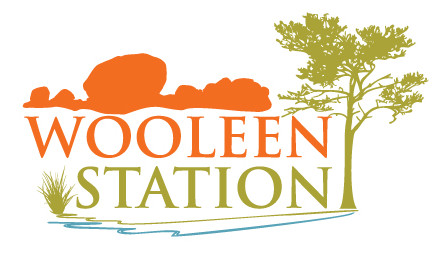Firstly, please remember Wooleen Station is only open from the 1st of April to the 30th of October each year.
Help Wooleen conserve the environment
When visiting Wooleen we ask you to be eco-aware and to tread lightly.
As an example, using solar panels and battery storage to power Wooleen Station helps us to minimise our impact on the environment. However, we need your help to achieve it:
• Respect the eco-friendly policies of the station to contribute to the respect of the environment.
• Be careful and stay on the paths and roads to help prevent erosion.
• Be considerate of all people who live in the rangelands, fossicking and collecting rocks, gemstones and fossils is not permitted.
• Participate in eco-sensitive activities.
• Keep the area the way you would like to find it.
Weather and Roads
Entry into the Murchison and Wooleen Station is via an unsealed road (gravel), although this road is graded regularly we recommend you seek advice before heading out on the current conditions of the road. Heavy rainfall which can occur in winter will lead to road closures. In such circumstances, all deposits will be refunded in full. However, Wooleen cannot be responsible for any other expenses incurred by guests affected by such a closure.
Wooleen can experience extremes in weather and temperatures. Ranging from frosts in Winter to heat in the high 40's during the summer. For full Murchison Climatology click here. We recommend you plan ahead and ensure that you have enough food and water with you before setting out.
For information on road closures and weather warnings, please visit
www.mainroads.wa.gov.au
www.bom.gov.au
http://www.murchison.wa.gov.au/road_conditions.
Google Maps can be unreliable when calculating your driving distance and times to Wooleen Station. Please check with us if you are uncertain.
Insurance
Unforeseen circumstances may result in you having to change your plans or even cancel at the last moment. To protect your deposits and payments we strongly recommend you purchase comprehensive travel insurance. This is available from travel agents, some health care & credit card companies and via various websites. Please be sure to consider such things as pre-existing medical conditions, valuable items and that the policy is right for you.
Guidelines when traveling through pastoral areas
- The pastoral industry as a business venture incurs high capital and operating outlay. Any hindrance, therefore, due to carelessness or vandalism can be extremely costly.
- The great majority of land over which public roads pass in outback region of WA is held under pastoral lease. This land should be regarded as private property, with the same laws of trespass as apply in farming areas. Additionally, not all roads marked on maps are public or gazetted roads. Many of them are private.
- Permission is not required for travel on gazetted public roads provided you remain within the roads reserve. However, anyone wishing to enter a pastoral lease beyond the road reserve, whether by using private roads or otherwise should obtain permission from the station owners first.
- In Pastoral areas, main roads are not normally fenced but station boundaries are usually indicated.
- Unfenced roads mean that livestock and wildlife will often be found on the road or crossing it, so always watch for the unexpected, especially at night when speed should be reduced accordingly.
- Camping in a creek or river bed can be dangerous due to flash flooding, particularly in the summer months. There may not have been any sign of rain where you are but rain in another area can bring a wall of water and debris several metres high down a creek or riverbed. Rain on a river catchment several hundred kms away may take several days to reach where you are, with fatal results.
Rules when travelling through in pastoral areas
- Contact the Homestead and enquire where you can or cannot go
- Leave gates as you find them unless otherwise directed. A gate may be open to allow stock to get to water.
- Refrain from lighting fires unless approved by the Station owner. If you have a fire cover it completely with earth and ensure it is out before going to sleep or leaving camp.
- Littering and dumping rubbish is an offence by law the same as anywhere else and plastics and tin cans can be fatal when chewed or swallowed by livestock.
- Do not bathe, swim or wash clothes in water tanks, water holes or troughs and do not camp near watering points as stock will not come in to drink.
- Chasing or upsetting livestock can cause broken fences, injuries or even death especially around lambing or calving time.
- Fences are not to be cut, removed or driven over
- Traveling on unsealed wet roads can cause damage costing thousands of dollars and take months to repair. You could be made to pay, so check with the local Shire or station owner before driving on unsealed roads after rain.
- Dogs are not to be taken onto a pastoral property without the Station owners permission. Your dog could be subject to 1080 poison baits set it eradicate wild dogs.
- Sections of the Firearm Act which apply particularly to pastoral areas and for which the law provides penalties are:
- Shooting to, from or across a road;
- Shooting on private property without the owner's consent; and
- Carrying a firearm on land used for primary productions without permission

